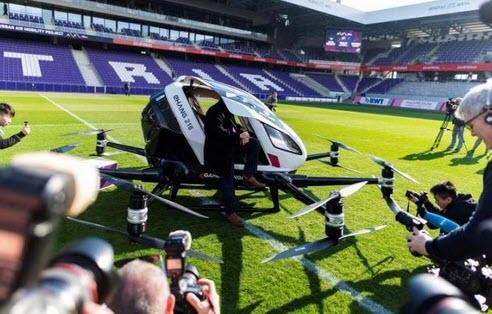
An autonomous aerial vehicle technology company called Ehang has launched the world’s first commercial Urban Air Mobility (UAM) service in China.
The EHang 216 drone can carry fly two human passengers, has been exhibited in China and Europe over the last several years. We noted in April 2019, the drone flew in Vienna. Now it will be flying people from the LN Garden Hotel in Nansha, a coastal district in Guangzhou.
The partnership between EHang and LN Holdings will begin with a pilot program in the near term — marks the world’s first hotel offering passenger drone service to patrons. The drone will first provide aerial sightseeing tours, traveler transportation, air logistics, and aerial media light shows.
EHang and the hotel will eventually expand the air travel network to the regional community, offering drone-taxi service to patrons.
CEO of EHang, Hu Huazh, said the partnership with LN Holdings would help transform “Guangzhou into a global air mobility pilot city.”
“Guests of LN Garden Hotel will experience our one-stop intelligent AAV services, including the unique aerial sightseeing, convenient and autonomous air deliveries, and high-tech aerial light shows,” said Huazh.
General manager of LN Group and chairman of LN Holdings, Liang Lingfeng, said: “We own a large chain of resources in the tourism industry, covering travel, brand hotels, conventions, exhibitions, and scenic attractions. By leveraging our controlling shareholder LN Group’s ability to integrate its resources in the consumer sector, cooperating with EHang could generate incremental products and services..”
“We can fulfill customers’ travel demands in the air and on the ground by combining intelligent technology with the tourist experience. Eventually, we will provide new products and services across different sectors, business categories, and regions in the country,” said Lingfeng.
The new service lays a foundation for regulators around the world to establish international guidelines that will benefit the long-term development of UAM services. The flying car market is expected to be a billion-dollar industry by the end of the decade.
At the moment, the most significant barrier to flying cars is regulation, especially in the US, where Federal Aviation Administration (FAA) has set the rules on air travel — usually seen as an international standard.


